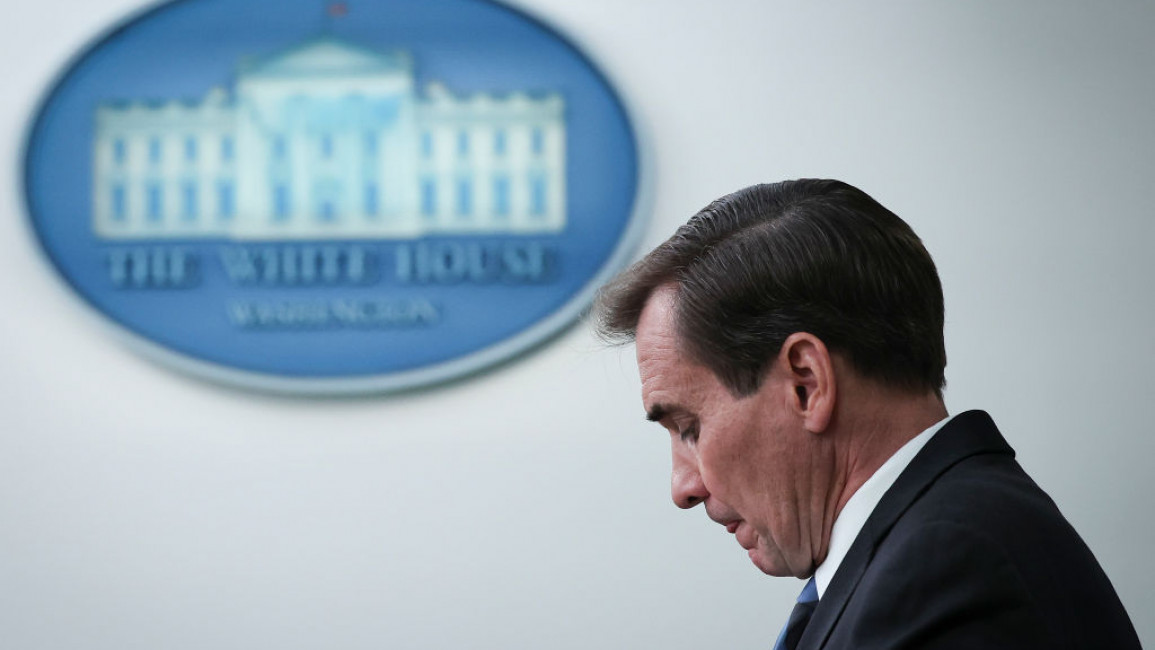US excludes Saudi Arabia from National Security Strategy amid growing rift over oil production cut
The White House excluded any mention of Saudi Arabia in its 48-page national security strategy document amid a growing rift between Washington and Riyadh over an OPEC+ production cut.
Saudi-led oil cartel OPEC+ announced last week that it would cut oil output by 2 million barrels a day - a decision that dashed American hopes to increase production amid an energy crisis precipitated by Russia’s invasion of Ukraine.
US President Joe Biden said on Tuesday that the planned oil cut would have "consequences" for US-Saudi relations moving forward and vowed to work with Congress to re-evaluate once close ties to the Gulf Kingdom.
"I think the president’s been very clear that this is a relationship that we need to continue to re-evaluate, that we need to be willing to revisit," said US National Security Spokesman John Kirby in an interview with CNN.
"And certainly in light of the OPEC decision, I think that’s where he is."
In comparison, Russia is mentioned 71 times in the October National Security Strategy; Ukraine 32, China 9 and Iran 7.
The report said: "We have also experienced a global energy crisis driven by Russia’s weaponization of the oil and gas supplies it controls, exacerbated by OPEC’s management of its own supply.
"We continue to explore all opportunities with our allies and partners to stabilize energy markets and get supplies to those who need it."
The US and Saudi Arabia have historically maintained strong relations around energy and security cooperation.
When Moscow invaded Ukraine on February 24, Washington hoped to bring Riyadh on board with its anti-Russia proclamations and measures to economically isolate President Vladimir Putin.
Saudi Arabia did speak out about the "negative consequences" of the Russia-Ukraine conflict, particularly regarding "food security". However, it refrained from outright condemnation of Moscow’s invasion.
Instead, Saudi Arabia continued to cooperate with Russia on issues such as energy market regulation within OPEC+ and helped broker a high-stakes prisoner swap.
Bob Menendez, the Democratic chairman of the US Senate Foreign Relations Committee, called on Washington to "freeze" its relations with Riyadh on Monday, saying cooperation must be limited until "the Kingdom reassesses its position with respect to the war in Ukraine".
This diplomatic turmoil comes just months after Biden visited Crown Prince Mohammed bin Salman, where he fist-bumped the de facto Saudi leader despite previously campaigning for the isolation of the Kingdom over the murder of Saudi journalist Jamal Khashoggi.


![President Pezeshkian has denounced Israel's attacks on Lebanon [Getty]](/sites/default/files/styles/image_684x385/public/2173482924.jpeg?h=a5f2f23a&itok=q3evVtko)



 Follow the Middle East's top stories in English at The New Arab on Google News
Follow the Middle East's top stories in English at The New Arab on Google News


